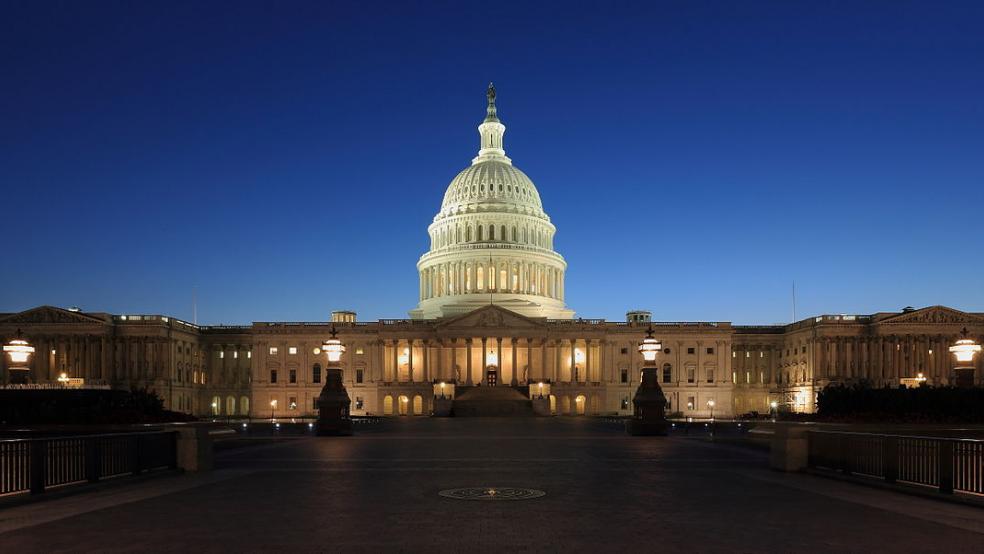Hopes are dimming that Congress will intervene to block a huge Medicare premium increase of over 50 percent for nearly a third of the 50 million elderly Americans who receive their physician care and other health services through Medicare Part D.
Republicans and Democrats are deadlocked over how to come up with roughly $10.5 billion to prevent Medicare premiums from skyrocketing for millions of seniors beginning next January. The looming increase is the result of a quirk in the law that drives up premiums for wealthier Americans and poor people with chronic medical problems in years when the Social Security Administration doesn’t approve a cost-of-living adjustment for beneficiaries.
Related: Millions Face a 50 % Medicare Premium Hike If Obama and Congress Don’t Act
While both parties are interested in doing something to reduce or avert the premium hikes, Republicans are demanding that the cost of any bailout be offset by cuts in other areas of the Medicare program, while Democrats are resisting that approach. Moreover, there is a division between House Minority Leader Nancy Pelosi (D-CA) – a major champion of a bailout – and some Senate Democratic leaders who are less enthusiastic about the effort and how to pay for it.
“It’s a big mess,” said one Washington health care expert who is following the negotiations closely.
Negotiations may pick up later this month once the Centers for Medicare and Medicaid Services formally releases its official 2016 premium rates, according to a report on Thursday by the Morning Consult. Lawmakers in both parties are under intense pressure from AARP, other seniors’ groups and labor organizations to find a way to prevent the hike. “If Congress fails to reach a compromise before the increase takes effect next year, it will not be hard for Democrats to place the blame on Republicans,” the Morning Consult report concludes.
Indeed, House Democratic Caucus Chairman Xavier Becerra (D-CA) and other Democrats active on this issue have scheduled a press conference for later today to put added pressure on House Speaker John Boehner and the Republicans to address the problem, and to promote the Democrats’ bill to block the premium increase – but without explaining precisely how it would be paid for.
Related: Millions Facing a Hefty Increase in Medicare Premiums in 2016
“Fifty-five dollars [of a Medicare Part B premium increase] may not sound like a lot to some Republicans, especially when you consider that over the last several months they passed legislation that provided tax breaks to the tune of one trillion dollars, mostly to Wall Street and very large corporations and very wealthy Americans,” Becerra said earlier this month. “It’s time to stop and get to work. Because for most seniors, Medicare is not a luxury; it’s indispensable.”
The stakes for many Americans are high. Unless Congress and the White House ultimately intervene, Medicare Part B premiums for doctors and outpatients will increase by 52 percent for about 30 percent of people with Part B coverage – or 16.5 million people nationwide, according to a new state-by-state analysis by AARP.
About 7.5 million of the 16.5 million people affected by the sharp premium increase will be wealthier Americans who are in better position to absorb the hike. But about 9 million low-income enrollees with complicated medical problems who qualify for both Medicare and Medicaid will also see their premiums go up – although state Medicaid programs would have to pick up much of that added cost.
Not surprisingly, big states with large numbers of seniors will feel the brunt of the rate increase, according to AARP. That includes California, with 1.93 million beneficiaries, Florida (1.23 million), New York (1.06 million) and Texas (1.09 million).
Related: Congress’ Medicare ‘Fix’ Could Leave Seniors Paying More
The potential Medicare premium increases are prompted by a strange twist in the law that effectively penalizes wealthier beneficiaries and others any time the Social Security Administration fails to approve an annual cost of living adjustment. This will be only the third time since 1975 that Social Security will not increase under the cost of living adjustment, largely because the Consumer Price Index used by the government has remained relatively flat.
Medicare Part B and the Social Security trust fund are intertwined, and most seniors on Medicare have their monthly premiums deducted from their Social Security checks. Because the federal law for various reasons “holds harmless” about 70 percent of Medicare recipients from premium increases to cover unexpected rising healthcare costs, the remaining 30 percent of Medicare Part B beneficiaries suffer the consequences by being made to pay higher premiums.





